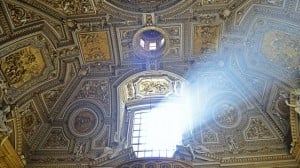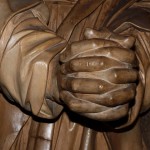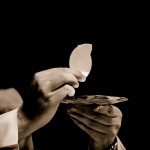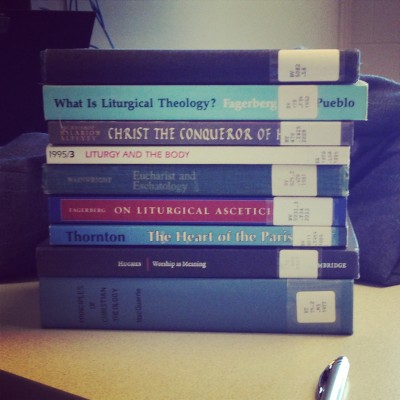We celebrate the recent and historic meeting between Pope Francis and Kirll, Patriarch of Moscow and All Russia in Havana, Cuba (“the first in history” according to Point 1). It was in fact the first time that these two church leaders have meet since the Patriarchate of Moscow was claimed in 1448 and recognized in 1589-1593 (cf. Metropolitan Hiliarion’s convocation at SVOTS about primacy). Despite what some Facebook acquaintances have remarked—they desire to argue over dates and Moscow’s place in the Orthodox hierarchy—this is a benchmark occasion. Communion between Catholics and Orthodox has been broken for almost 1,000 years and this may well be the first step (of many) toward proper unity.
You can the read the entirety of their Common Declaration here.
I am including some brief remarks on the joint statement in order to help point out to Protestants why this meeting matters. It needs to be noted that the Catholic and Orthodox Churches are the two largest Christian traditions in the world, comprising near 75% of Christians on the planet. Anything to take place positively between the two churches cannot, no, must not be ignored.
The common declaration covers a wide range of topics and should be applauded by all: ecumenical dialogue, the persecution and murder of Christians in the Middle East, abortion and euthanasia, evangelism, marriage, humanitarianism, interreligious conversations, cooperative efforts between the Catholics and Orthodox, and much more. Covering 30 points, this statement is a massively important piece of the ecumenical puzzle. Here are some highlight quotes:
“5. Notwithstanding this shared Tradition of the first ten centuries, for nearly one thousand years Catholics and Orthodox have been deprived of communion in the Eucharist.” There is mutual recognition of broken communion—and therefore something to be healed. “6. Mindful of the permanence of many obstacles, it is our hope that our meeting may contribute to the re–establishment of this unity willed by God, for which Christ prayed.”
“13. Interreligious dialogue is indispensable in our disturbing times.” They do not shy away from the fact that Christianity can and must dialogue with other religions. We cannot fear the other. We cannot remain ignorant of other beliefs and remain in our white towers. We must engage and engage with a humble intelligence.
“18. The Christian churches are called to defend the demands of justice, the respect for peoples’ traditions, and an authentic solidarity towards all those who suffer.” Despite the stones that others can and do throw at the Church, Christianity is a religion that should and does care for others. To love God fully is to love people unequivocally.
Finally, and most importantly, “24. We are not competitors but brothers…” There is no room for competition between East and West and nor should there be. We are all members of God’s covenant family and we strive to invite others into that covenant regardless of their expression of eventual churchmanship. I am delighted to see these two leaders speak honestly.
As you’ll see, these two leaders have issued statements about issues near and dear to Protestants.
Familiarize yourself with this statement, share it with others, read through it and begin to pray for unity amongst the Body of Christ because there can only be one Body since there is only one Head. It remains to be seen what the other Orthodox patriarchs will make of this meeting, but the much anticipated Great Council in June 2016 suggests that there could be more positive ecumenical developments in the coming months–and that should be welcomed by all.
1. Everyone should read Artur Rosman’s post over at Cosmos The in Lost for further thoughts.
Photo Credit: Pixabay













